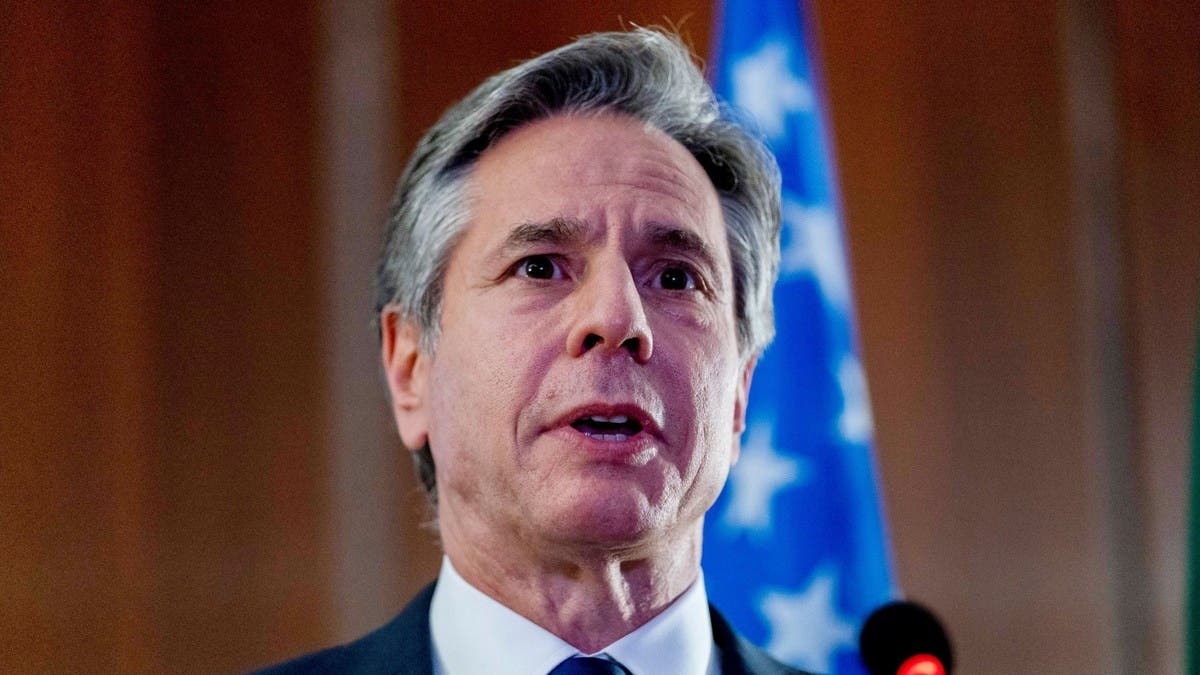US Secretary of State Antony Blinken is expected to meet Russian Foreign Minister Sergei Lavrov on Thursday during a European security conference, amid escalating tensions over Moscow's build-up of troops near its border with Ukraine.
The meeting is due to take place on the sidelines of the summit of the Organization for Security and Cooperation in Europe (OSCE) in Stockholm. Blinken will also meet separately with Ukrainian Foreign Minister Dmytro Kuleba.
Speaking in Riga on Wednesday after a meeting of NATO foreign ministers, Blinken expressed US concerns about Russia's large-scale military operations and what he said were its efforts to destabilize Ukraine from within.
For the latest headlines, follow our Google News channel online or via the app.
“We don't know whether President (Vladimir) Putin has made the decision to invade. We do know that he's putting in place the capacity to do so in short order, should he so decide,” said Blinken.
The United States is ready to respond with “a range of high impact economic measures that we have refrained from pursuing in the past”, he added, without elaborating.
Blinken is expected to relay to Lavrov the threat of further sanctions if Russia fails to end the troop build-up on Ukraine's border and to remind him that there is a diplomatic solution, a senior State Department official told reporters.
“The dialogue is more important when things are not going well,” the official said. “Beyond making clear the cost of Russian actions, I’m certain that the Secretary is also going to want to make clear that there is a diplomatic off-ramp.”
Flashpoint
Ukraine, a former Soviet republic that aspires to join the European Union and NATO, has become the main flashpoint between Russia and the West as relations have soured to their worst level in the three decades since the Cold War ended.
Ukraine says Russia has deployed more than 90,000 troops near their long shared border.
Moscow accuses Kyiv of pursuing its own military build-up. It has dismissed as inflammatory suggestions it is preparing for an attack on Ukraine but has defended its right to deploy troops on its own territory as it sees fit.
But Putin has also said Russia would be forced to act if NATO placed missiles in Ukraine that could strike Moscow within minutes.
The Kremlin annexed the Black Sea peninsula of Crimea from Ukraine in 2014 and then backed rebels fighting Kyiv government forces in the east of the country. That conflict has killed 14,000 people, Kyiv says, and is still simmering.
As well as Ukraine, other issues including cybersecurity and the Kremlin's treatment of its critics have also helped drive relations between Washington and Moscow to post-Cold War lows.
US Central Intelligence Agency director William Burns earlier this month raised the issue of Russian cyberattacks during a rare visit to Moscow, where he met high-ranking security officials, three sources told Reuters.
Another focal point for East-West tensions has been the refugee crisis on the borders between Belarus, a Russian ally, and NATO members Poland and Lithuania.
Western nations accuse Belarusian leader Alexander Lukashenko of engineering the migrant crisis in retaliation for sanctions imposed on Minsk over its human rights record. Minsk blames the West for the humanitarian crisis.
Read more:
US bombers practiced using nuclear weapons against Russia in November: Moscow
US, Russia military chiefs speak on the phone
US seeks balance as fears grow Russia troop buildup may lead to invasion of Ukraine

 World2 years ago
World2 years ago
 World2 years ago
World2 years ago
 Entertainment7 years ago
Entertainment7 years ago
 World7 years ago
World7 years ago
 Entertainment7 years ago
Entertainment7 years ago






